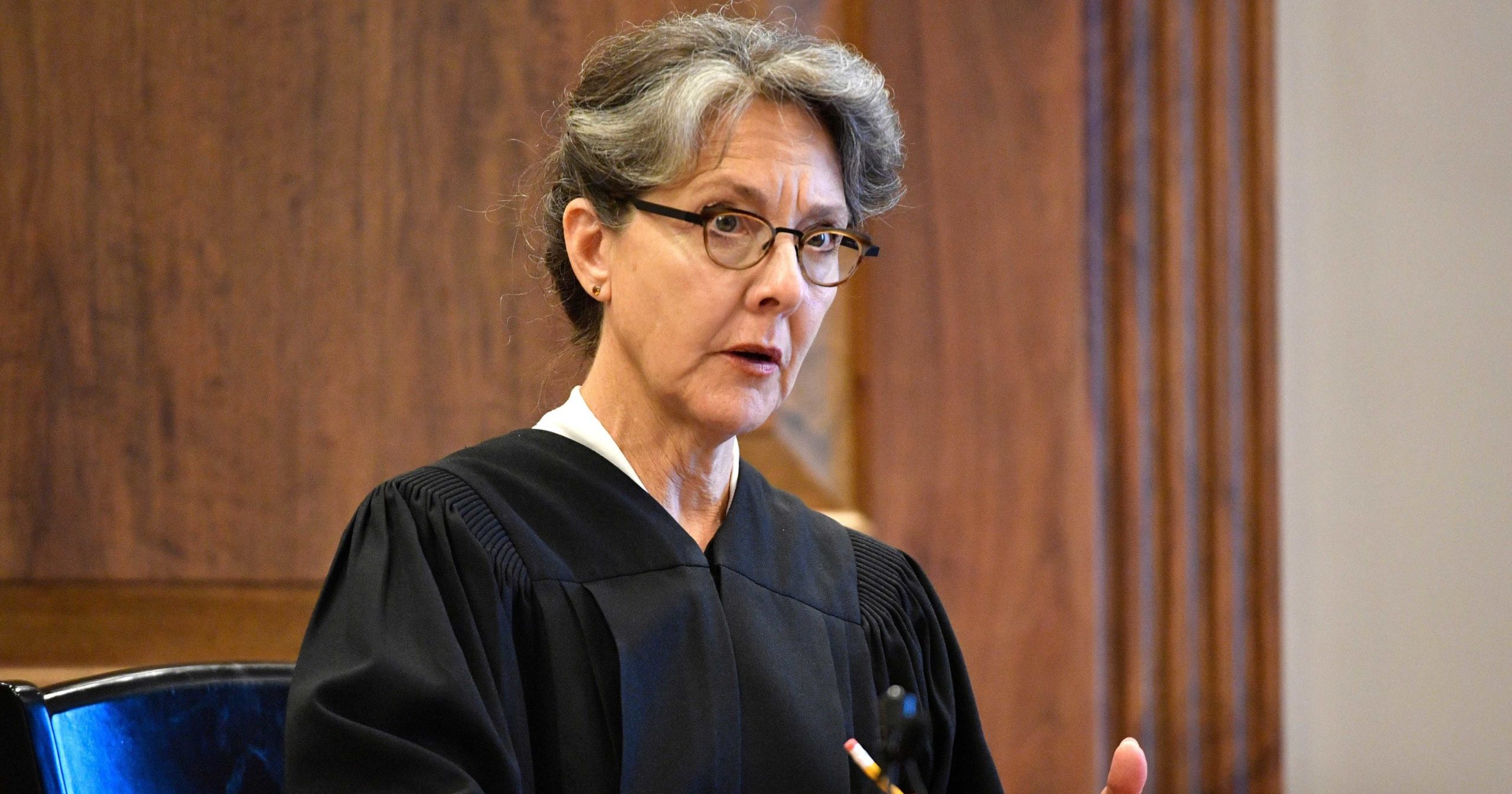
Tennessee Republicans Stand Up to Judge Who Dictated Election Law from the Bench
The Republican-dominated Tennessee House is moving forward with a proposal to remove a judge for expanding absentee voting in the 2020 election.
A resolution with nearly unanimous House GOP support is calling for proceedings that could remove Davidson County Chancellor Ellen Hobbs Lyle, whose ruling was ultimately overturned by the state Supreme Court but only after the state allowed people at high risk of COVID-19 complications to vote by mail.
House Speaker Cameron Sexton said the resolution seeks to “truly see if she was legislating from the bench, which we don’t think should be allowed.”
Many states expanded access to absentee balloting or other voting methods due to concerns about the coronavirus, despite arguments by former President Donald Trump and his fellow Republicans that any expansions should have legislative approval.
The proposal has uncertain prospects in the Senate, where GOP Lt. Gov. Randy McNally said it’s “definitely not a slam dunk.” Instead of removing Lyle, McNally said he would rather change where constitutional challenges against the state are heard.
The resolution would create a legislative panel that would recommend whether or not to remove Lyle. A two-thirds vote in each chamber would then be needed for removal.
Sixty-five of 73 House Republicans have signed on. To date, the Senate version has no co-sponsors.
Tennessee elections officials said fear of COVID-19 was not a reason to vote by mail. Lyle then ruled that Tennessee must offer widespread absentee voting amid the pandemic, and it did for the Aug. 6 primary.
The state Supreme Court overruled her and restored the requirement of an excuse for absentee voting for November. However, the high court also ruled that people could vote absentee if they believed they or someone in their care faced a high risk of COVID-19.
Lyle extended that ruling to include any voter whose household included someone with an underlying health condition.
After Lyle’s ruling in June, Attorney General Herbert Slatery issued a rare rebuke, saying the expansion was “another court decision replacing legislation passed by the people’s elected officials with its own judgment.”
Days later, Lyle said “shame on you” in virtual court to Tennessee officials who held off on sending coronavirus-related absentee applications for hours after the initial ruling and rewrote the applications without her instruction.
She warned of the “specter of criminal contempt” if the state didn’t follow future orders.
Republican Rep. Tim Rudd, the resolution’s sponsor, said Lyle “clearly overstepped her authority by any level of judgment.”
The attorney general’s office said the removal push is a matter for lawmakers. A spokeswoman for the Tennessee Department of State didn’t explicitly call for Lyle’s removal, but reiterated complaints about the judge.
“We encourage the public to read Chancellor Lyle’s orders and watch the hearings to make up their own mind as to whether Chancellor Lyle violated her constitutional authority,” State Department spokeswoman Julia Bruck said.
“We found her court orders to be confusing, conflicting, and a usurpation of authority.”
The Tennessee Bar Association has come out in opposition to the resolution, saying that it could set “a precedent that any time a judge rules against the state … or renders a politically unpopular decision, that decision could potentially trigger legislative removal proceedings against that judge.”
Lyle, appointed in 1995 by Republican Gov. Don Sundquist, was re-elected numerous times. She’s up for re-election in 2022.
Over the last five decades, Tennessee lawmakers have twice removed judges. Both times, the judges faced federal criminal convictions, most recently in 1993.
The Western Journal has reviewed this Associated Press story and may have altered it prior to publication to ensure that it meets our editorial standards.
Truth and Accuracy
We are committed to truth and accuracy in all of our journalism. Read our editorial standards.
Advertise with The Western Journal and reach millions of highly engaged readers, while supporting our work. Advertise Today.












